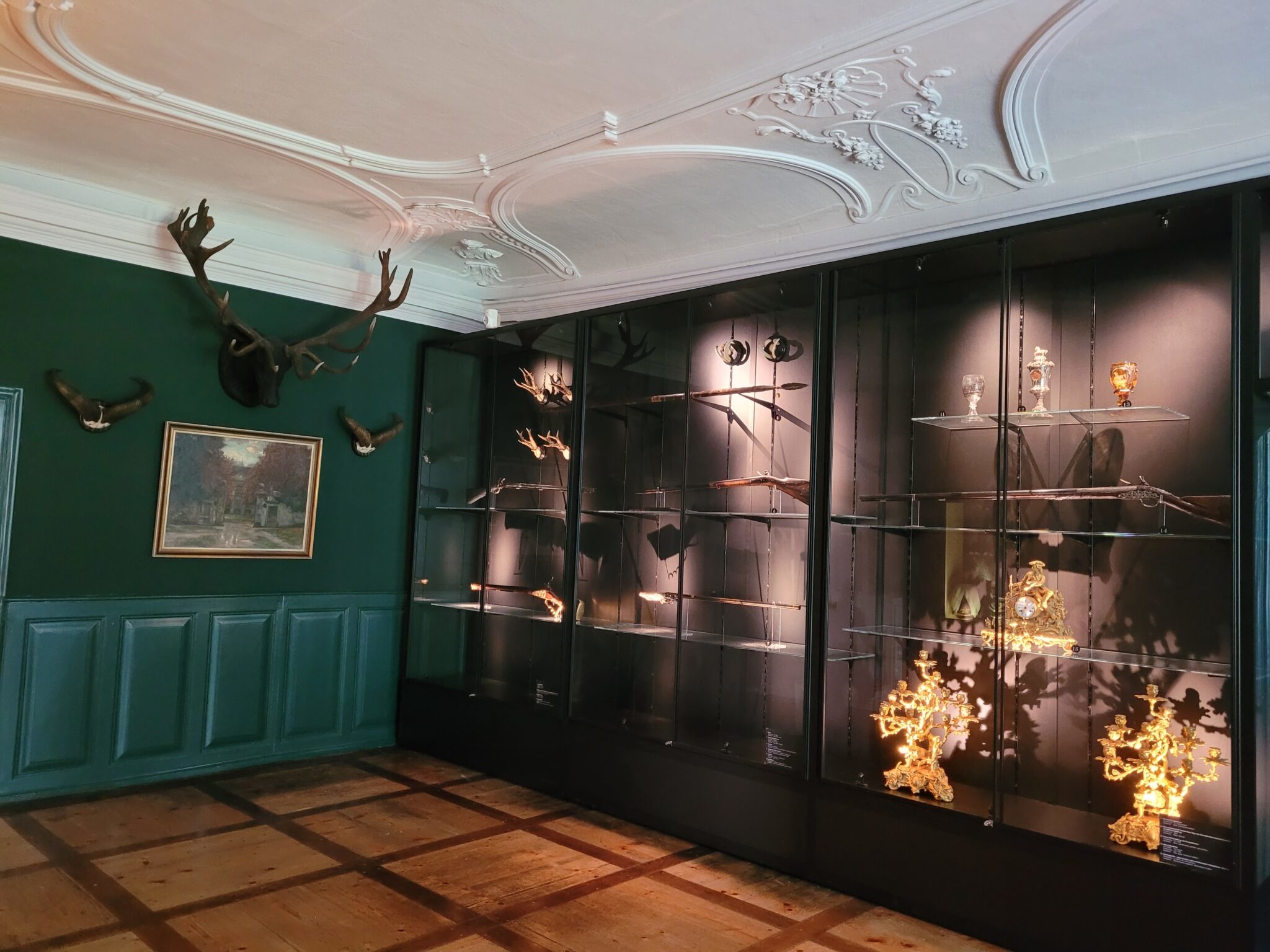Showcase Story 2 - In Pursuit of Eternal History
Germany, September 1907. Prince Leopold IV zur Lippe gazes contentedly from one of the windows of Schloß Detmold. Dew pearls weigh down the blades of grass on the lawn, and in the distance, a chilly veil of mist drifts through the Teutoburg Forest. Judging by the commotion, the servants are already busy preparing the carriage for the hunt!
"Hopefully, we'll shoot as beautiful and fat a wild boar as last time," Leopold wishes. "Or perhaps a deer or a magnificent stag... As long as we don't come across poachers who disturb our cautious expedition. After all, we want to impress our noble guests with an impressive hunting dinner tonight."
Lost in thought and slightly excited about what lies ahead, Leopold polishes his binoculars once again. The shotgun is clean and loaded, the shooting stick is ready, and in the kitchen, the cooks are preparing the picnic for the journey. Coffee, wine, beer, bread, sausages, fruit, smoked ham... Nothing can go wrong today.
Shortly after, Leopold takes his place in the carriage beside the master huntsman. Several servants accompany the prince to assist in the hunt and later provide lunch. The coachman signals the horses, and the group sets off in a trot towards Schloß Lopshorn, the traditional starting point for the hunt. Auf geht's! (Let's go!)

Living Tradition
Schloß Lopshorn no longer exists today. A fierce fire destroyed the castle shortly after the end of WWII. Schloß Detmold, on the other hand, still thrives. It is the residence of Stephan Prinz zur Lippe, grandson of Leopold (who is the uncle of the well-known Prince Bernhard). Prinz zur Lippe is the namesake of Kanzlei Prinz zur Lippe, a legal and tax consulting firm located in Schloß Detmold.
Prinz zur Lippe not only enjoys telling stories about long-forgotten hunting trips but is also an avid hunter himself. "It's a deep-rooted passion that I inherited from my grandfather and later from my father. My children also enjoy hunting. However, nowadays, hunting is purely intended for maintaining a healthy wildlife population," says Prinz zur Lippe, who, in addition to being the "head of the house," carries numerous honorary and noble titles. He not only works in Schloß Detmold but also resides there and manages the surrounding estates.
Germany, September 1907. Prince Leopold IV zur Lippe gazes contentedly from one of the windows of Schloß Detmold. Dew pearls weigh down the blades of grass on the lawn, and in the distance, a chilly veil of mist drifts through the Teutoburg Forest. Judging by the commotion, the servants are already busy preparing the carriage for the hunt!

"Of course, we hunt much differently now than a hundred years ago," Prinz zur Lippe continues. "For example, my grandfather used to hunt before the time of percussion and muzzle-loading guns. They would venture out in a horse-drawn carriage into the almost untouched forests. If they suspected the presence of game, the hunters would dismount while the carriage continued, drawing the attention of the deer and stags away from the approaching hunters. A hundred and fifty meters was close enough to make an attempt; from about eighty meters, the hunting guns were almost infallible."
Impressive Hunting Trophies in the display cabinets
Visitors often admire the many hunting trophies in the SDB display cabinets in the Jagdzimmer (Hunting Room) of Schloß Detmold, which the zur Lippe family shot in the Teutoburg Forest and elsewhere in the world. Hunting equipment and related items also adorn the showcases, such as guns, falconer's bags, medieval knives, an ancient hunting horn, and a so-called Saufeder (a spear used for hunting wild boars).
"However, our showpiece is the head of a Rothirsch (red deer) from long before my grandfather's time," Prinz zur Lippe reveals. "Experts have determined that this deer must have been shot between 1600 and 1848. Anything after 1848 is excluded because that was the year when the noble privilege of hunting expired, and the population killed anything that moved. Fortunately, the authorities later introduced fallow deer, which is now the dominant game species in the Teutoburg Forest."
"We derive pleasure from hunting; it's in our DNA."
Dreams for the Future
Whether the SDB display cases in the hunting room will house new trophies is uncertain. "Naturally, we derive pleasure from hunting; it's in our DNA," says Prinz zur Lippe. "And in our beautiful showcases, we can present them splendidly. However, we hunt much less than our ancestors, and, as mentioned, solely for the purpose of regulating the wildlife population. Through targeted hunting, we prevent, for example, the game from devouring the forest and nearby fields. Do I still dream of a beautiful, new trophy? We often discuss it within the family. Only time will tell."
For more examples, click here for our museum brochure: MUSEUM BROCHURE
Behind each object in a showcase, there is a remarkable story. The featured piece certainly earned its place behind the glass. We share these historical, thrilling, and captivating stories in the Showcase Story section.
Do you have a Showcase Story worth savoring? Let us know at [email protected]










